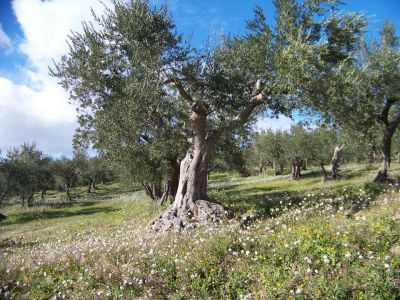Italians are blaming extreme weather conditions for the plummet in Italy’s olive harvest – the worst in 25 years. A 57% plunge in the country’s olive harvest could leave Italy dependent on imports beginning in April, a leading climate scientist has warned. Erratic rainfalls, early spring frosts, strong winds, and summer droughts have all contributed to the demise of olive trees across the Mediterranean. Beyond Italy, the European commission has projected 2018-19 olive harvests to drop by 20% in Portugal and 42% in Greece. These weather shocks weaken the trees leaving them more vulnerable to bacterium and olive fly infestations. And while the quantity of the oil is less affected, it’s the quality that is the issue. Extra virgin olive oil must meet certain criteria before being classified as such and the current olive tree conditions could prevent that for future harvests.
In tutto lo Stivale e nelle Isole si è registrato un brusco calo di produzione delle olive, soprattutto a causa delle condizioni meteo avverse che hanno portato alla peggiore raccolta degli ultimi 25 anni. Una riduzione del 57% potrebbe lasciare l’Italia dipendente dalle importazioni a partire da aprile, ha ammonito uno dei principali studiosi di cambiamenti climatici. L’andamento altalenante ha presentato diversi estremi: gelate, grandinate, bombe d’acqua e venti forti che hanno prodotto danni considerevoli alle piante ed alla produzione olearia in tutto il Mediterraneo. La Commissione europea ha stimato che la raccolta di olive per il 2018-19 potrebbe subire un calo del 20% in Portogallo e del 42% in Grecia. L’elevata umidità e le temperature idonee allo sviluppo di patogeni e parassiti hanno inoltre contribuito ad incidere negativamente sulla produzione in termini quali-quantitativi. L’olio extra vergine di oliva deve soddisfare determinati criteri per poter essere classificato come tale e le attuali condizioni di salute delle piante potrebbero impedirlo per i raccolti futuri.



